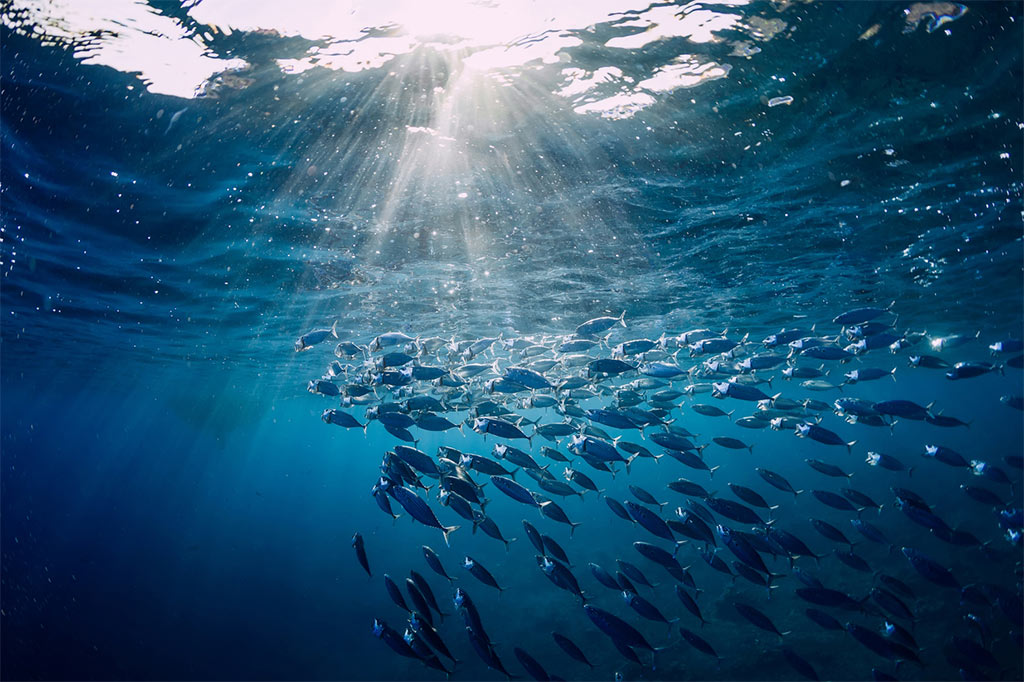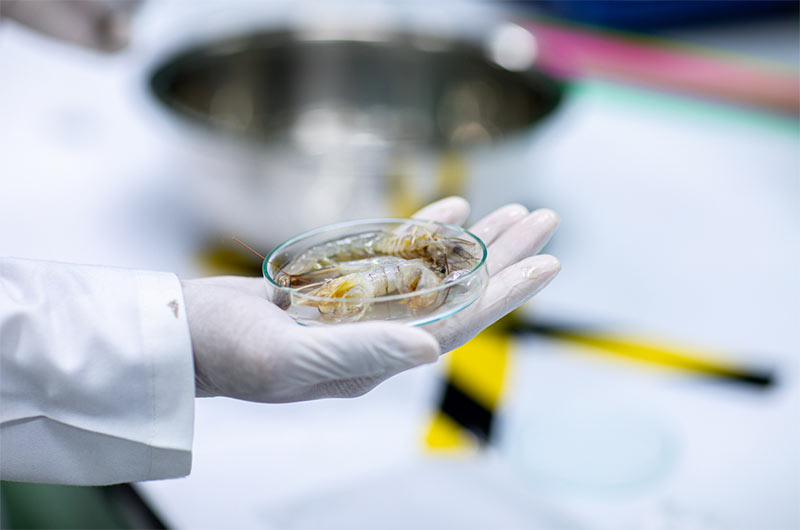Ocean in Peril: Science and CLS Solutions at the Heart of the Response
- 7 November 2025
- Category: News

Published on September 30, 2025, the 9th Copernicus Ocean State Report, led by Mercator Ocean International, highlights the critical state of the global ocean, now facing a triple crisis: climate change, biodiversity loss, and pollution.
Co-authored by CLS scientists Anna Conchon and Olivier Titaud, this landmark report underscores the growing importance of applied fisheries science in understanding and responding to these transformations.
Through its marine data and expertise services, CLS turns science into operational solutions for sustainable management of marine resources.
The 9th Copernicus Ocean State Report Sounding the Alarm
The Copernicus Ocean State Report (OSR) 9 paints a sobering picture: every ocean basin is now affected by climate-related disruption.
Sea temperatures have reached record highs, acidification is accelerating, ocean currents are shifting, and biodiversity is collapsing. These phenomena are already threatening marine ecosystems, coastal economies, and global food security.
In West Africa, shrinking and shifting micronekton populations, a vital link in the food web, directly impact fisheries.
“What we are observing today is unprecedented in scale and speed. Ocean systems are reacting faster than expected,” explains Anna Conchon, PhD in Fisheries Science at CLS. “These changes directly affect the distribution of marine resources and the way we must manage them.”
The report stresses the urgent need for robust scientific tools and reliable data to anticipate changes and inform decision-makers. The ocean’s condition is now as vital an indicator as global temperature for tracking the planet’s evolution.
CLS Scientists on the Front Line: Turning Science into Action
 Within this urgent context, CLS brings together advanced scientific and technological expertise to transform data into impact.
Within this urgent context, CLS brings together advanced scientific and technological expertise to transform data into impact.
Researchers Olivier Titaud and Anna Conchon co-authored part of the OSR 9, a recognition of their contribution to international ocean research.
Their work focuses on fisheries dynamics: species migration, habitat shifts, marine heatwaves, and trophic-network changes.
By combining in-situ sensors, satellite observations, and acoustic analysis, CLS provides a precise and actionable picture of living resources and their environment.
“Our goal is to go beyond observation,” explains Olivier Titaud, Computational science expert at CLS.
“We strive to turn analyses into decision-support tools that empower managers, policymakers, and coastal communities. Data must become a lever for action.”
This integrated approach helps CLS guide fisheries and aquaculture strategies, anticipate environmental risks, and support evidence-based ocean policies.
By bridging research and action, CLS empowers decision-makers to respond effectively to global ocean challenges.
From Warning to Action
 The 9th Copernicus Ocean State Report (OSR 9) is more than a warning: it is a call to action. Ocean transformations are accelerating, demanding real-time insights and adaptive responses tailored to each ecosystem.
The 9th Copernicus Ocean State Report (OSR 9) is more than a warning: it is a call to action. Ocean transformations are accelerating, demanding real-time insights and adaptive responses tailored to each ecosystem.
Through its Fisheries Science and Data Expertise Service, CLS combines scientific rigor with operational know-how, providing marine stakeholders with the means to adapt to change.
“Change is already underway,” notes Anna Conchon.
“But through data and science, we can act in an informed, coordinated, and effective way. The ocean is not doomed, it needs a response that matches the scale of the challenge.”
The 2025 edition of the Copernicus Ocean State Report confirms a global crisis, but also showcases the crucial role of scientists and organizations that turn knowledge into action.
With its research teams, advanced technologies, and solution-oriented mindset, CLS stands as a trusted partner for building a more sustainable future for the ocean.
